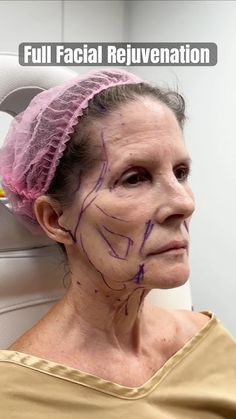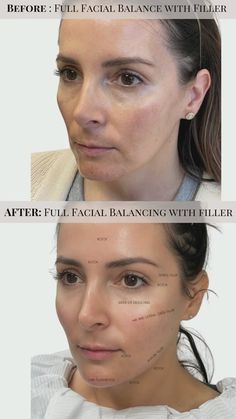Plastic Surgery: Benefits, Risks, and Considerations
Plastic Surgery: Benefits, Risks, and Considerations
Plastic surgery has become a common practice in modern society, offering solutions for both cosmetic enhancement and medical reconstruction. Whether undertaken to improve appearance, restore function, or address medical conditions, plastic surgery can significantly impact individuals’ lives. Here, we delve into the various aspects of plastic surgery, its benefits, risks, and critical considerations.The Art of Being a Classy Woman: Elegance and Grace Redefined

1. What is Plastic Surgery?
Plastic surgery is a specialized branch of medicine focused on altering, reconstructing, or enhancing physical features. It is broadly categorized into two types:
- Reconstructive Surgery: Aimed at restoring functionality and appearance following trauma, illness, or congenital conditions. Examples include cleft palate repair, burn treatment, and breast reconstruction after mastectomy.
- Cosmetic Surgery: Focused on improving aesthetic appeal, symmetry, and proportion. Popular procedures include rhinoplasty, liposuction, and facelifts.Fall Outfit Ideas: Stay Stylish and Cozy
2. Common Types of Plastic Surgery
- Rhinoplasty: Reshapes the nose to improve appearance or correct breathing issues.
- Liposuction: Removes excess fat deposits to contour the body.
- Breast Augmentation or Reduction: Enhances or reduces breast size for aesthetic or medical reasons.
- Facelifts and Botox: Reduces signs of aging, such as wrinkles and sagging skin.
- Tummy Tucks (Abdominoplasty): Removes excess skin and fat from the abdomen.
- Skin Grafting: Replaces damaged skin, commonly used in burn treatments.

3. Benefits of Plastic Surgery
Plastic surgery offers numerous advantages, including:
- Improved Appearance: Enhances facial and body features, boosting self-esteem and confidence.
- Restored Functionality: Reconstructive procedures can restore essential functions like breathing, chewing, or movement.
- Emotional Well-Being: Correcting physical imperfections often leads to improved mental health and self-image.
- Medical Benefits: Certain surgeries address health issues, such as breast reduction alleviating back pain or rhinoplasty improving breathing.
4. Risks and Complications
Like any surgical procedure, plastic surgery carries inherent risks:
- Infection: Surgical sites can become infected if not properly cared for.
- Scarring: Some procedures may result in visible scars.
- Anesthesia Complications: Reactions to anesthesia, though rare, can occur.
- Unsatisfactory Results: Outcomes may not always align with expectations, requiring revision surgery.
- Prolonged Recovery: Some procedures involve lengthy healing periods.
5. Key Considerations Before Undergoing Plastic Surgery
Before deciding on plastic surgery, it’s crucial to consider the following:
- Realistic Expectations: Understand that surgery can enhance but not guarantee perfection.
- Qualified Surgeon: Choose a board-certified plastic surgeon with proven experience.
- Medical History: Discuss your medical history and any pre-existing conditions with your surgeon.
- Cost and Financing: Plastic surgery can be expensive, and not all procedures are covered by insurance.
- Recovery Time: Plan for downtime and follow post-operative care instructions diligently.

6. Alternatives to Plastic Surgery
For those hesitant about surgery, non-invasive treatments may be suitable:
- Dermal Fillers: Add volume to the skin and reduce wrinkles.
- Laser Treatments: Address skin issues like pigmentation and scars.
- CoolSculpting: A non-surgical fat reduction procedure.
- Skin Care Regimens: Improve skin quality through professional products and treatments.

7. The Ethical Debate
Plastic surgery often raises ethical concerns, such as:
- Body Image Pressure: Societal standards can push individuals toward unnecessary procedures.
- Addiction: Some individuals pursue repeated surgeries, seeking unattainable perfection.
- Cultural Perceptions: Attitudes toward plastic surgery vary across cultures and communities.
8. Recovery and Aftercare
Proper recovery and aftercare are essential for successful outcomes:
- Follow Instructions: Adhere to your surgeon’s post-operative guidelines.
- Stay Hydrated and Rest: Support your body’s healing process with adequate rest and hydration.
- Attend Follow-Ups: Regular check-ups with your surgeon ensure proper healing.
- Monitor Symptoms: Watch for signs of infection or complications and seek medical attention if needed.

Plastic surgery can be a transformative experience, offering both aesthetic and medical benefits. However, it’s vital to approach it with thorough research, realistic expectations, and a clear understanding of the potential risks and rewards. Consultation with a qualified plastic surgeon is the first step toward making an informed decision about whether plastic surgery is right for you.Essential Fashion Tips: Elevate Your Style with Confidence








Post Comment